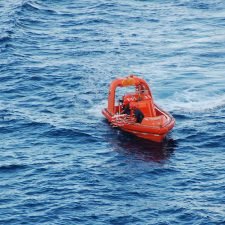
When offshore and maritime accidents happen, there are usually a number of different companies that are potentially responsible for the injury, particularly with platform and rig accidents.
A critical issue in determining liability is the relationship among the various parties. In considering these relationships, a key question is whether some workers are “borrowed employees” or “borrowed servants” of the potentially responsible companies.
Why Does It Matter if An Employee is a Borrowed Employee?
Generally speaking, employees cannot bring tort claims against their employers and are instead limited to claims for workers’ compensation, either under state workers’ comp laws or under the federal Longshore and Harbor Workers’ Compensation Act (or LHWCA). This immunity provides a powerful defense for companies who get sued for personal injuries. For this reason, companies will often argue that an injured worker is their borrowed employee (and should be treated no differently than one of their own employees) so they can be protected from suit.
On the other hand, workers who qualify for seaman status can bring claims against their employers under the Jones Act. This creates an incentive for an injured seaman to argue that he or she was the borrowed employee of another company to take advantage of this remedy.
What Determines if an Injured Worker is a Borrowed Servant?
Figuring out whether an injured worker is a borrowed employee is complicated. The Fifth Circuit has the most commonly used test for borrowed employee status, which considers the following questions:
1. Who exercised control over the employee?
2. Whose work was being performed at the time of the accident?
3. What were the terms of any agreements between the companies?
4. Did the worker understand that he or she was working for the borrowing employer and continue to do the job?
5. What was the relationship between the worker and his or her original employer?
6. Who provided the tools and place of performance?
7. How long was the “borrowing”?
8. Who had the right to discharge the worker?
9. Who had the obligation to pay the worker?
No one answer will determine borrowed servant status. Instead, each case will be decided on its own facts and will consider the answers to each of these questions.
Call a New Orleans Maritime Lawyer
If you’ve been injured in an accident while working offshore, the laws can be complicated. The Mahone Firm is here to help you through it. Call (504) 564-7342 to discuss your case with a personal injury attorney today.






